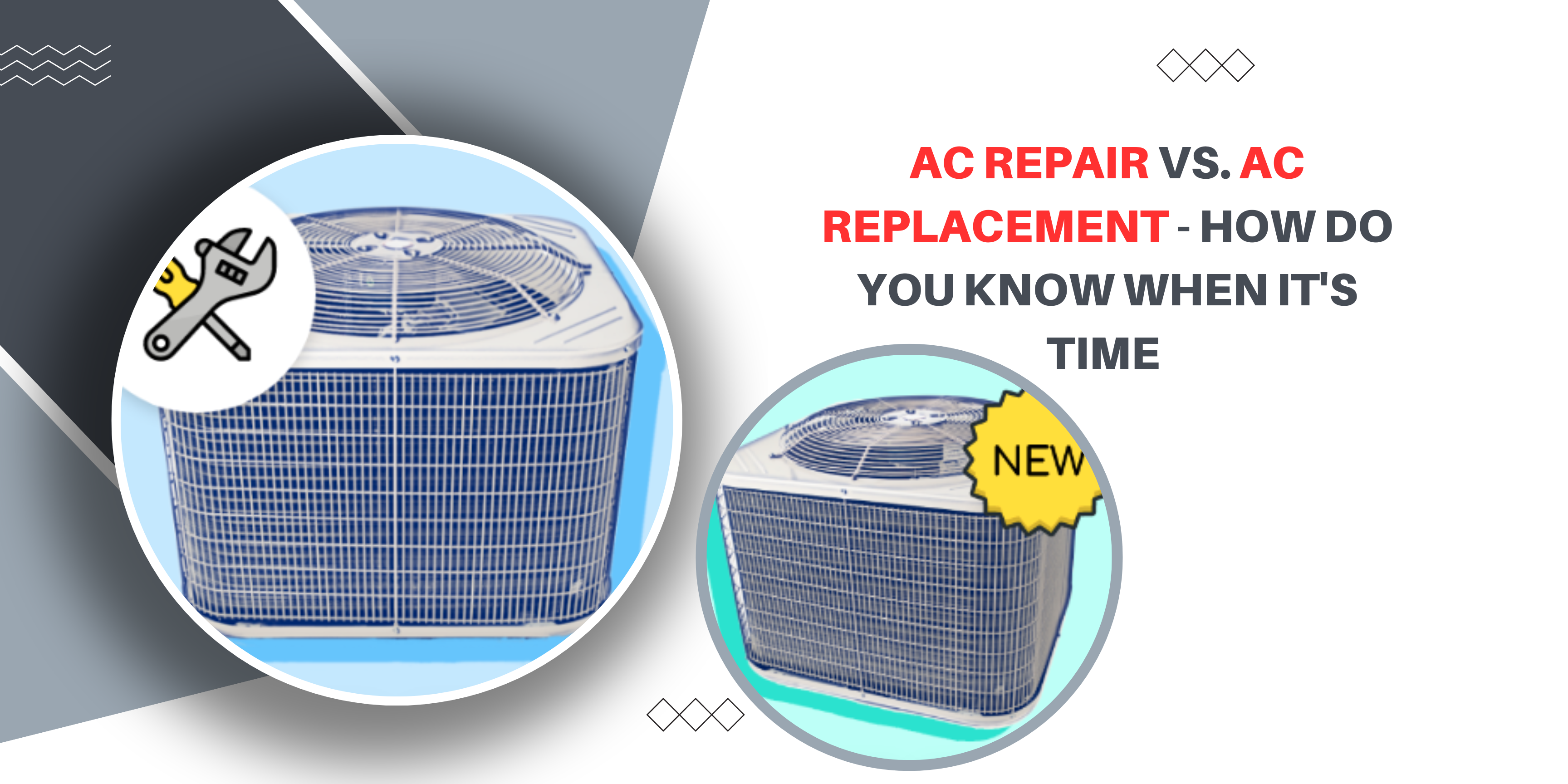A working air conditioning system ensures a pleasant and healthy indoor atmosphere, particularly during hot and humid weather. When an AC unit malfunctions, it can cause problems such as poor air quality, increased energy bills, and reduced comfort.
Homeowners have two options when their AC system malfunctions: repair the existing unit or invest in a new AC unit. This post will cover the common indicators that signal the need for an AC repair or replacement. Additionally, we will provide tips for maintaining your AC unit to extend its lifespan and efficiency.

How Long Do AC Units Last?
An AC unit’s lifespan depends on various factors, such as the quality of the unit, the frequency of usage, and the level of maintenance it receives. Generally, AC units can last anywhere from 10 to 25 years, with the average lifespan being around 15-20 years. However, the better care you take of your unit, the longer it will last.
Regularly servicing and repairing your AC unit by reliable professionals is crucial for its longevity. It includes cleaning and replacing air filters, checking refrigerant levels, inspecting electrical connections, and cleaning the condenser coil. Scheduling regular maintenance with trusted professionals can help you detect any issues early and prevent them from becoming major problems that can result in costly repairs or replacements.
While some AC units can last up to 20 years or more, installing a new unit after 15 years is generally recommended. Likely, your existing AC unit is no longer functioning at optimum levels, which could be leading to escalated energy costs and more frequent maintenance requirements. Upgrading to a new AC unit can improve efficiency, lower energy costs, and reduce the need for repairs.
How to Maintain Your AC Unit
Maintaining your AC unit regularly is crucial for enhancing its longevity and efficiency. Neglecting this crucial aspect can lead to costly repairs and replacements. Follow these tips meticulously to keep your AC unit in top-notch condition.
Replace Filters Regularly: Regularly replacing the filters of your AC unit every one to three months is crucial for ensuring its efficient operation. Dirty filters can hinder airflow, which results in increased energy consumption and puts extra pressure on the unit. Therefore, by timely replacing the filters, you can keep your AC running smoothly and efficiently.
Clean the Condenser Coil: The condenser coil can accumulate dirt and debris, hindering its release of heat. Clean the coil at least once a year to ensure proper heat transfer and optimal efficiency.
Check Refrigerant Levels: If the refrigerant levels are low, the AC unit may work harder and become less efficient. Have a professional check the refrigerant level and top it up if necessary.
Ensure Proper Airflow: If the airflow to your AC unit is blocked or restricted, it can cause it to work harder and potentially shorten its lifespan. Keep vents and registers clean and unobstructed, and ensure enough clearance around the outdoor unit.
Regular maintenance prolongs the life of your AC unit, improves efficiency, and reduces energy costs. AC service and repair from trusted professionals can identify potential issues early and prevent costly repairs or replacements. Keeping your AC unit in good condition ensures your home remains cool and comfortable during the summer. Even a small amount of maintenance work can have a significant impact.
When to Determine Whether to Repair or Replace Your AC Unit
If you’re unsure whether to repair or replace your AC unit, this informative infographic can assist you in making the right decision.
About the Author
Shelby Bartz is the new Content Editor of Precision Air & Plumbing, a full-service HVAC, plumbing and home performance contractor operating in Chandler, Arizona. Shelby is a devoted bookworm but when she isn’t reading, you’ll find her cruising around town with her beloved ginger husky, Maxxy.



0 Comments